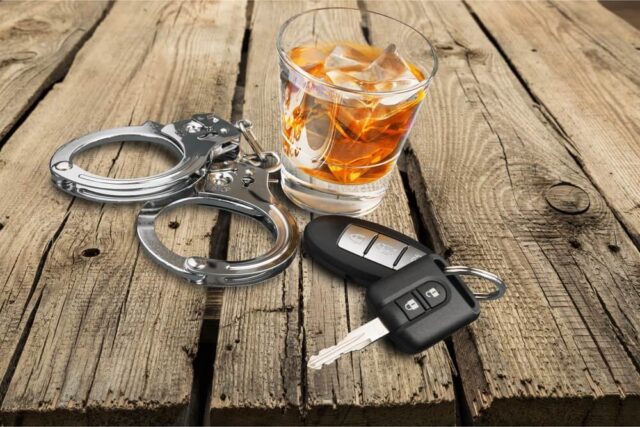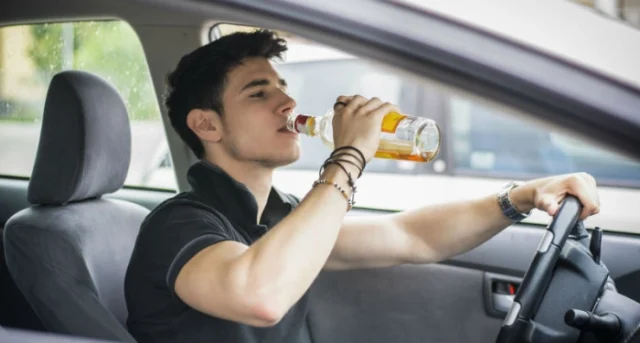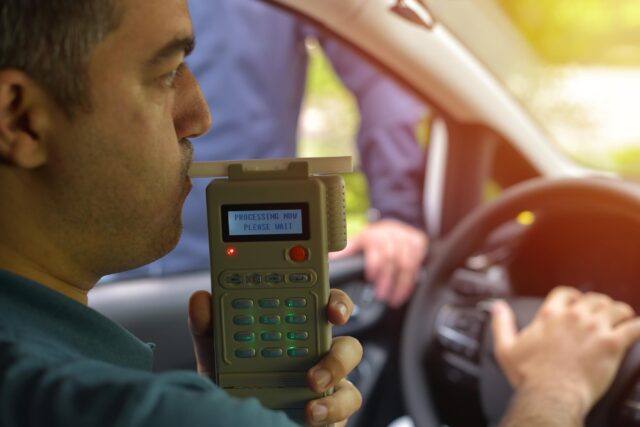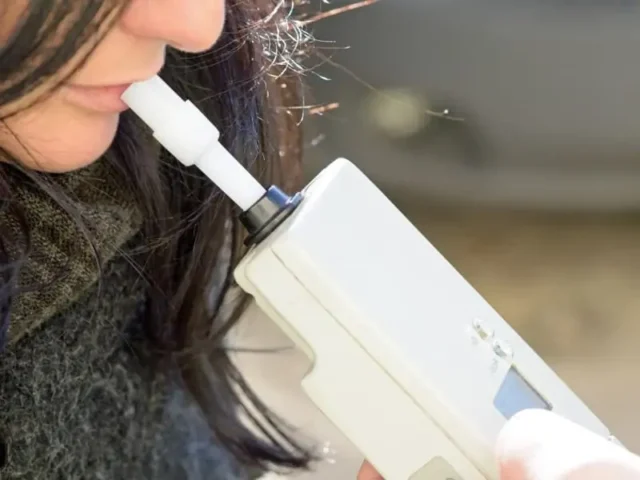
Responsible driving isn’t just about maneuvering a vehicle from one point to another; it’s a commitment to ensuring the safety of ourselves, our passengers, and fellow road users. It’s a conscious effort to abide by laws, respect road signs, and adopt safety measures that prevent accidents. Responsible driving is a shared responsibility that requires knowledge, awareness, and the use of tools like breathalyzers to ensure sobriety and prevent tragedies.
Importance of Preventing Drunk Driving Incidents and Accidents

The consequences of drunk driving are grave and far-reaching. Every year, countless lives are lost due to accidents caused by impaired drivers. Preventing such incidents is a moral imperative that goes beyond adhering to laws – it’s about valuing human lives. Responsible driving means never getting behind the wheel after consuming alcohol, as even small amounts can impair judgment and reaction time. This commitment becomes even more crucial when we consider innocent lives that could be affected by our choices.
Role of Breathalyzers in Detecting Blood Alcohol Content (BAC)
Breathalyzer is playing a crucial role in road safety by detecting Blood Alcohol Content (BAC). These devices provide a quick and non-invasive way to measure the level of alcohol in a person’s bloodstream through their breath. By analyzing the alcohol present in exhaled breath, breathalyzers offer instant feedback about an individual’s sobriety. This real-time information empowers individuals to make informed decisions before getting behind the wheel. Breathalyzers serve as a tangible reminder that this is not just about personal choices, but also about safeguarding the lives of fellow road users. Through their accuracy and ease of use, breathalyzers contribute significantly to reducing the risks associated with drunk incidents and promoting a culture of safety on the roads.
Explaining How Breathalyzers Function and Their Accuracy

Breathalyzers operate on the principle of alcohol being present in the breath as well as in the blood. When a person exhales into the device, the alcohol in their breath reacts with the sensor, generating an electrical current. This current is then measured and converted into a BAC reading. Modern breathalyzers are remarkably accurate, but factors such as calibration and usage can influence their reliability. Regular maintenance and following the manufacturer’s guidelines are crucial to ensure consistent and precise readings.
Types of Breathalyzers Available for Personal and Professional Use
Breathalyzers come in various forms to cater to different needs. Portable personal breathalyzers are convenient for individuals to use before deciding to drive. Professional breathalyzers, often used by law enforcement, are more sophisticated and provide accurate results suitable for legal proceedings. As technology advances, some smartphones even have breathalyzer attachments that offer the convenience of a personal device with the accuracy of professional equipment. Choosing the right type depends on individual requirements and the level of accuracy desired.
Legal Implications of BAC Limits and Consequences of Exceeding Them

Different jurisdictions have specific BAC limits, usually set at 0.08% in many places. Exceeding this limit not only endangers lives but also leads to severe legal consequences, including fines, license suspension, and even imprisonment. These penalties highlight the gravity with which authorities view drunk driving. Breathalyzers can serve as a proactive measure, allowing individuals to gauge their sobriety and make a responsible choice before potentially facing the legal and personal ramifications of exceeding the BAC limit.
Highlighting Essential Safety Tips for Responsible Driving
Beyond the use of breathalyzers, responsible driving encompasses a range of safety practices. Always wear seatbelts, obey speed limits, and avoid distractions while driving. Keep a safe distance from other vehicles, use turn signals, and yield the right-of-way as needed. Adhering to these practices not only reduces the risk of accidents but also sets an example for fellow drivers. In adverse weather conditions, exercise additional caution. Responsible driving is about being proactive and considerate, contributing to safer roads for everyone.
Planning Ahead: Designated Drivers and Alternative Transportation Options

When socializing involve alcohol, planning ahead is key. Designating a sober driver before an event ensures a safe ride home. Alternatively, ride-sharing services, public transportation, or even arranging for a cab can prevent the temptation to drive under the influence. Remember, the temporary inconvenience of finding a ride pales in comparison to the potential consequences of impaired driving. Responsible individuals prioritize safety over convenience.
Recognizing Signs of Impairment and Making Informed Decisions
It’s not always easy to gauge our own level of impairment. Signs of intoxication can vary and might not be immediately obvious. Slurred speech, impaired coordination, delayed reactions, and altered judgment are all indicators. If you suspect you might be impaired, it’s best to err on the side of caution and avoid driving. Breathalyzers are valuable tools, but self-awareness is equally important in making informed choices that prioritize safety.
Educating About the Dangers of Distracted Driving and Its Avoidance

While preventing drunk driving is crucial, responsible driving also entails avoiding other distractions, such as texting or using phones while driving. Distracted driving poses a significant risk, impairing focus and reaction time. Educate yourself and others about the dangers of multitasking behind the wheel and commit to keeping your attention solely on driving. This small but impactful step can contribute significantly to safer roads.
Collaborative Efforts for Safer Roads: Government, Manufacturers, and Drivers
Responsible driving isn’t a solo endeavor; it requires collaborative efforts. Governments play a pivotal role by setting and enforcing strict regulations, including BAC limits. Manufacturers continue to develop innovative breathalyzer technology, making accurate devices accessible to all. However, the ultimate responsibility lies with individuals. By using breathalyzers, adhering to safety tips, and advocating for responsible driving within our communities, we actively contribute to the shared goal of safer roads.
Conclusion
In conclusion, responsible driving is a commitment that transcends personal convenience. Breathalyzers serve as indispensable tools in this journey, helping us make informed choices about our ability to drive safely. However, responsible driving goes beyond breathalyzers; it encompasses a holistic approach to road safety, involving awareness, education, and proactive decision-making. By embracing these principles, we can empower ourselves and others to create a safer driving environment for all. Let’s make responsible driving a priority and pave the way for a future where accidents caused by impairment are nothing but a distant memory.






